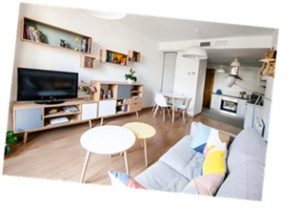On World Tourism Day, Airbnb presented the primary findings of the Oxford Economics study regarding its economic impact across 48 countries and territories. This presentation highlighted how the platform stimulates employment and income across various communities and industrial sectors. Interestingly, a significant portion of the spending by Airbnb guests is directed toward sectors beyond accommodation, such as restaurants, shops, and transportation providers.
The Significance of Tourism
Tourism stands as an increasingly vital aspect of Latin America’s economy. In 2021 alone, tourism generated a staggering 8.5 million jobs and contributed a noteworthy $182.7 billion to the GDP. Despite the pandemic’s impact, the sector is on a path to recovery, with Oxford Economics projecting visitor spending in Latin America to reach nearly $500 billion by 2025—marking a significant 16.4% increase from pre-pandemic levels. Notably, international guests continue to account for over half of the expenditure on Airbnb.
HOSTS on Search Platforms
This positive economic trend is largely driven by millions of hosts, the majority of whom are women and seasoned hospitality experts, comprising 53.2% of the total. Unlike many large hotels, Airbnb hosts can retain up to 97% of their earnings. However, for prospective hosts or managers, it’s important to temper expectations; generating income requires time to attract guests, secure bookings, and ultimately generate revenue.
Is Renting a Vacation Property Profitable?
Before the pandemic, Airbnb hosts typically earned around USD 924 per month for lodging, totaling between USD$10,000 and $12,000 annually. However, the COVID-19 pandemic has inevitably affected short-term rental earnings.
Advantages of Property Ownership and Rental on Platforms vs. Traditional Rentals
Both Airbnb and traditional renting offer their respective pros and cons. While traditional leasing provides a more stable income stream, owning and hosting on Airbnb presents unique advantages:
Higher-income potential than traditional leasing
Greater control over property management
Flexibility in adjusting prices.
Regular maintenance opportunities, unlike traditional leases that often lock you into fixed prices for extended periods.
Collaborate with specialized real estate professionals.
Tailor your property to attract your target guests.
For remote property management, consider hiring a local manager.
How to find success in the vacation rental industry
– Develop a comprehensive business plan
– Determine how much monthly recurring expenses will cost. Make a list of the monthly fees you pay for cleaning, maintenance, marketing, internet, insurance, services, and a property manager (if you work with one). Add up all these fixed costs and you will get your monthly recurring costs.
Calculate the occupancy rate you will need to cover monthly expenses and generate profits.
Calculate how much you will need to keep the business running during low-season periods.
Remember who your target guest is when looking for real estate to invest in. Your property should attract your guest profile and offer features that suit their needs.
If you’re thinking of managing your property remotely, you’ll need to hire a local manager.
Strengths of renting through hosting platforms like Airbnb:
60% of customers say renting this way is cheaper than going to a hotel.
The platform has a host and guest verification system to reduce issues related to lack of trust or security.
Space promotion is handled by Airbnb, they advertise and have a website that displays accommodations around the world.
It has around 6 million active listings worldwide.
Other accommodation platforms
Around the world, there are various types of accommodations operating under the Airbnb model, ranging from all types:
Vrbo: formerly known as HomeAway, it is one of the most recognized vacation rental websites. It also integrates other platforms and services to have various options or link reservations in accommodations from different places.
Wimdu: since 2011, it has offered vacation rentals in different destinations and with different types of rooms. It is one of the most prominent in Europe, with more than 350,000 vacation rental listings.
Booking: in addition to hotel reservations, it now also offers vacation rentals in homes.
Homestay: allows immersion in the local culture, connecting travelers with hosts from over 160 countries.
Kidandcoe: caters to the needs of families traveling with young children and connects with over 1,000 properties in 50 locations worldwide.


